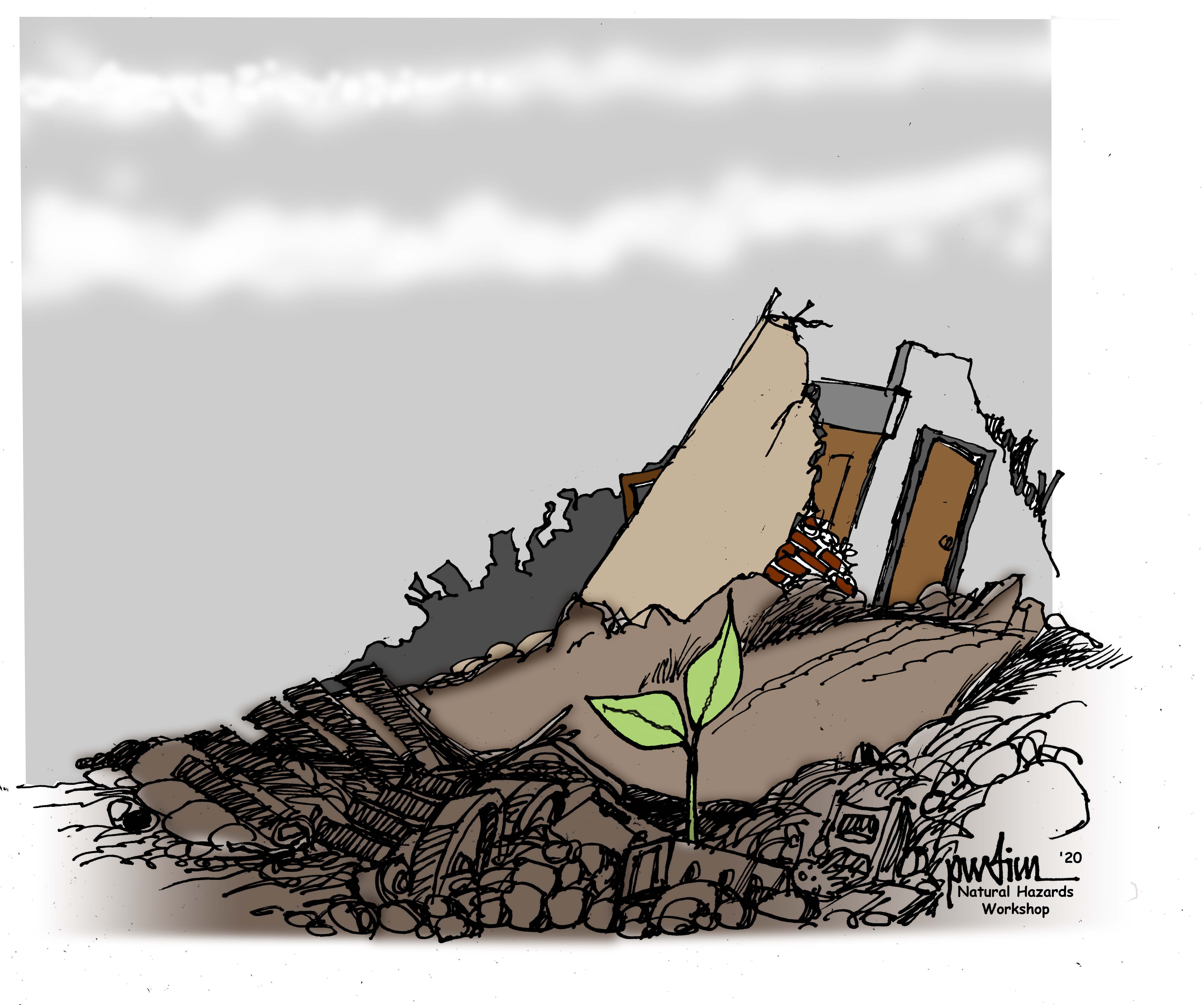Workshop Details
All sessions will be held VIRTUALLY this year!
 Everyone at the Natural Hazards Workshop has important information to share. As such, Workshop sessions are organized to encourage maximum interaction.
Everyone at the Natural Hazards Workshop has important information to share. As such, Workshop sessions are organized to encourage maximum interaction.
Panelists address topics by responding to questions prepared by moderators rather than by presenting papers. The audience also plays an important role. Initial panelist remarks are limited to 10 minutes each, leaving at least half of every session for audience interaction.
Program Structure
The Workshop is divided into plenary sessions, concurrent sessions, new research and projects sessions, poster sessions, and extracurricular activities. Plenty of time is reserved for networking during 30-minute breaks and 90-minute lunches.
Poster Sessions: This year, posters will be on display virtually throughout the Workshop. Audience members are welcome to visit the poster pages at any time. We will also have dedicated poster session viewing times built into the schedule on Sunday and Monday evenings. Participants are invited to present posters on programs, new projects, or recent research.
Sunday Sessions: While the Workshop officially kicks off Monday morning, we invite you to join us on Sunday for poster viewing and training sessions on a range of topics of interest to hazards and disasters scholars, practitioners, policy makers, and students. We encourage all those looking to build their skills and to learn more about employment opportunities and other ways to get involved to join!
Welcome: On Monday morning, Natural Hazards Center Director Lori Peek will formally open the 45th Annual Natural Hazards Workshop with a brief orientation and introduction.
Keynote Address: Immediately after the self-introductions, a keynote speaker will make a presentation followed by a question and answer session. The address will focus on this year’s theme of Active Hope in an Era of Environmental Extremes and provide the larger context for the Workshop.
Plenary Sessions: Plenary sessions on Monday, Tuesday, and Wednesday will synthesize various topics related to the theme of the Workshop. Each plenary session will have three to four panelists who represent different sectors of the hazards community including policy, practice, and research.
Concurrent Sessions: The Workshop features twenty-four concurrent sessions focused on the theme of the Workshop. Moderators will present the panelists with a set of questions which they’ve been given in advance. The panelists then each have about 10 minutes to respond. This reserves time for an open discussion between the audience and panelists.
Recent Research and Projects Sessions: These one-hour sessions, to be held on Wednesday morning, give Workshop participants the opportunity to describe current or recently completed efforts, to exchange ideas, and to get feedback on their work. Powerpoint will be available for Research and Projects Wednesday sessions.
Wrap Up: On Wednesday, the Center Director will close the Workshop with a summary of the highlights of the event and a charge for the hazards and disaster community moving forward in the coming year.
Session Guidelines
Those participating in the Workshop as a moderator or panelist will want to check out our Session Guidelines and advice for making your session a success.